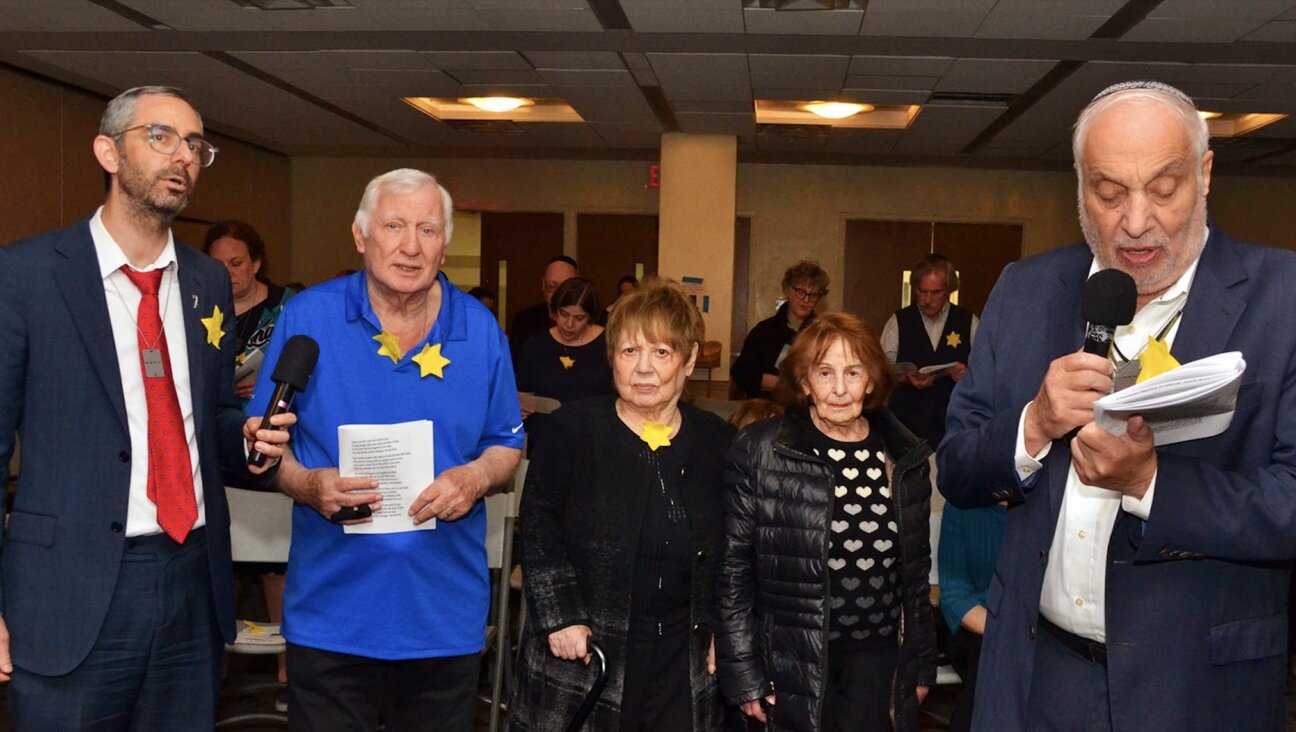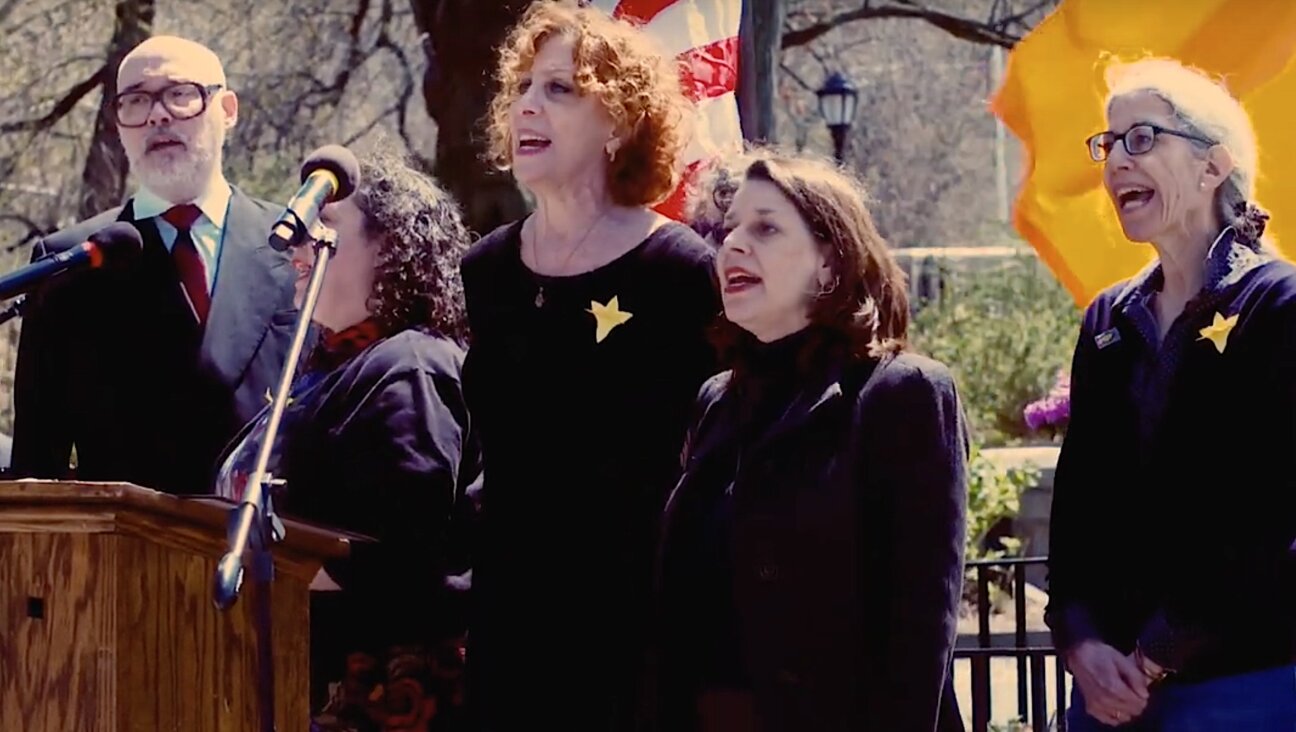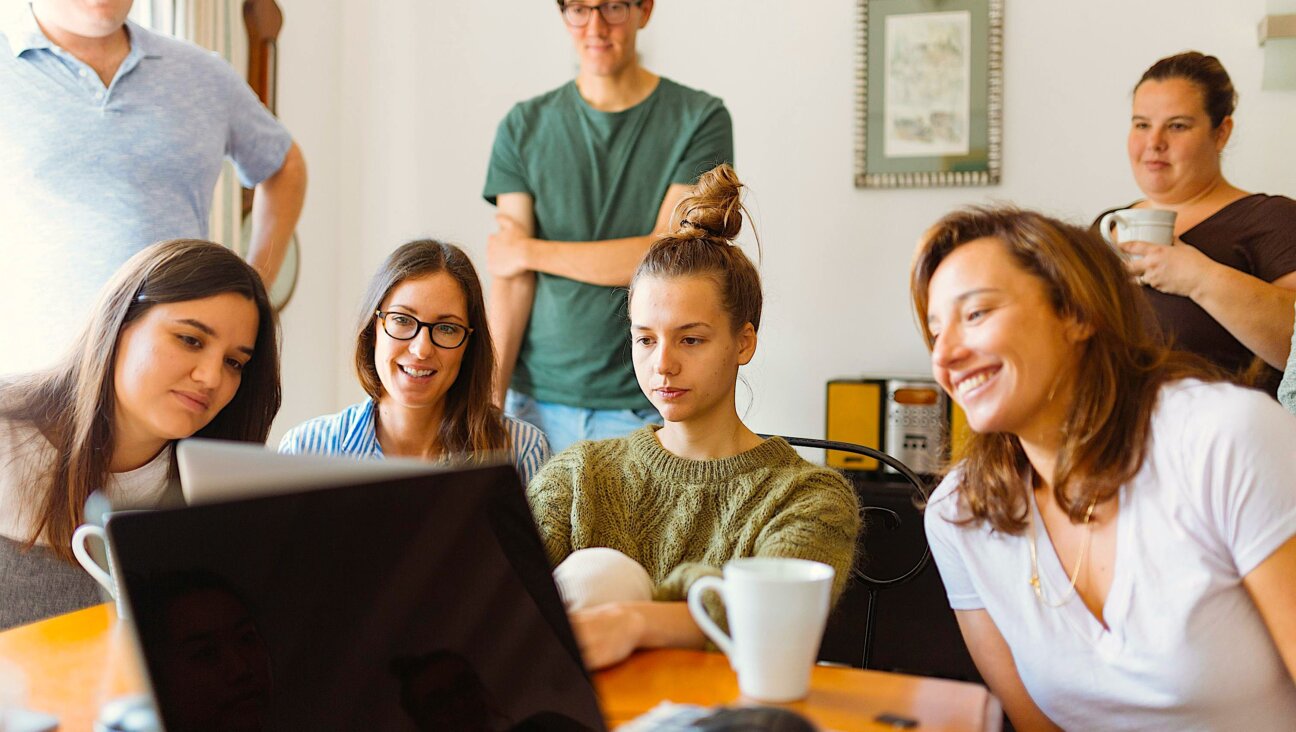Seven Yiddishists tell their story in a new documentary

Read this article in Yiddish
Yiddish has appeared, in various guises, with increasing frequency and prominence in cinema in recent years. A new documentary by the French documentary filmmaker Nurith Aviv, simply titled “Yiddish,” debuted on French television last year and can now be streamed online.
The film explores the current status of the language and growing interest in it through interviews with an international group of Yiddishists who explain how they became enamored with the language. While not all of the film’s subjects are Jewish, all learned the language due to personal connections to it.
Nurith Aviv was born in Tel Aviv in 1945 and has lived in Paris since the 1970s. Her films are often about languages – their impact on society and translation.
The director told the Forverts that the film is a continuation of her longstanding interest in these topics. She herself studied Yiddish at the Paris Yiddish Center – Medem Library. Altogether, she interviewed seven people from various countries with each subject filmed in his or her home.
One element of “Yiddish” that immediately strikes the viewer is that nearly every shot features open windows. Film critics note that the recurring image is a visual calling card of sorts for Aviv. The Yiddishists speak in different languages; Yiddish, Hebrew, French and English. Such multilingualism is also a characteristic feature of her films.
One of the participants, Valentina Fedchenko, described how the film’s production appeared from the inside. The participants’ monologues weren’t spontaneous improvisations but rather prepared in advance, although, of course, each subject added his or her own stories and interests to the text. Thanks to the accomplished direction and editing, the disparate elements come together to make a cogent whole. Through the subjects’ experiences, Aviv captures the world of Yiddish speakers, both contemporary and historical. The film also explores the language’s social status, the difficulty inherent in transmitting it to future generations and ways Yiddish is still discriminated against in certain circles where it is considered mere jargon.
The director had every participant read a work by his or her favorite Yiddish poet. Fedchenko, for instance, tells about the literary group “Di Yunge” (The Young Ones) and the poetry of one of its members, Moyshe Leib Halpern. Miglė Anušauskaitė, who lives in Vilnius, introduces viewers to Vilna poet Abraham Sutzkever. While talking about the poets, they discuss more general philological questions that are relevant today well beyond the realm of Yiddish literature.
Fedchenko believes that the director chose her subjects with certain principles in mind. To maintain a gender balance, four women and three men appear in the film. Among the male participants are Tal Hever Chybowski, the director of the Paris Yiddish Center – Medem Library and the famed Israeli poet and literary translator Dory Manor.
Fedchenko noted that Aviv appeared to purposefully select subjects who have an artistic talent and a theatrical presence. Their unusual biographies and knowledge of poetry also likely played a role in her choices.
“Yiddish” can now be streamed on Vimeo.
A message from our Publisher & CEO Rachel Fishman Feddersen

I hope you appreciated this article. Before you go, I’d like to ask you to please support the Forward’s award-winning, nonprofit journalism during this critical time.
At a time when other newsrooms are closing or cutting back, the Forward has removed its paywall and invested additional resources to report on the ground from Israel and around the U.S. on the impact of the war, rising antisemitism and polarized discourse.
Readers like you make it all possible. Support our work by becoming a Forward Member and connect with our journalism and your community.
— Rachel Fishman Feddersen, Publisher and CEO





















